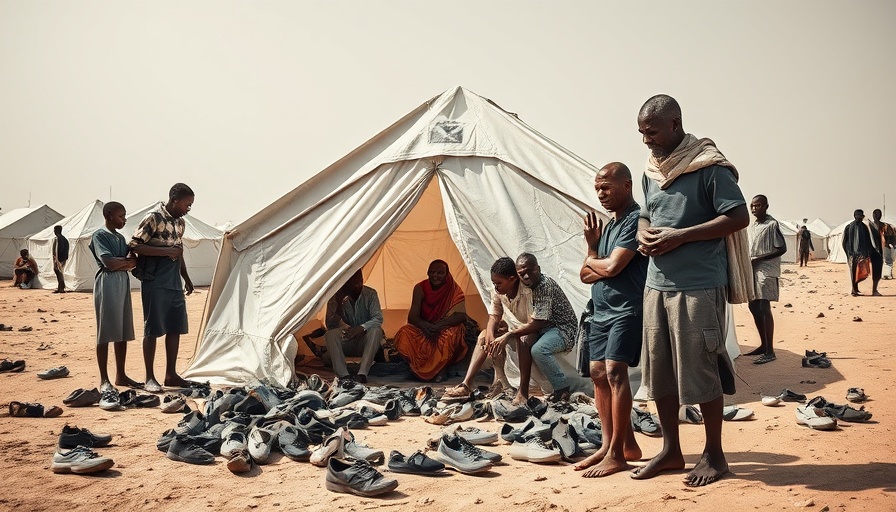
Building Hope: The Resilience of Sudanese Refugees
The ongoing crises in Sudan have led to a staggering number of individuals fleeing their homes, particularly in the regions of Darfur. Families are facing an uncertain future but are showing incredible resilience as they strive to rebuild their lives in neighboring countries like Chad. This situation has drawn attention from various humanitarian groups, yet many of these families still need support and the world's recognition of their plight.
Why Should We Care About Sudanese Refugees?
The stories of these refugees are not just headlines in the news; they are narratives of love, loss, and hope. Understanding their journey can help us recognize our shared humanity. When families flee violence, they carry their dreams and aspirations with them. They leave behind not only physical homes but also communities that nurtured them. By learning more about their experiences, we can cultivate empathy and understanding.
How Families Can Support Refugees: A Call to Action
Families rooted in Christian values can play a pivotal role in supporting Sudanese refugees. This can be as simple as participating in community drives to collect clothes and supplies or as impactful as engaging in advocacy efforts. Sharing these stories within one's own circles invites more people to participate in change.
Lessons for Our Own Families
As we consider the deep trials faced by these Sudanese families, it's an opportune moment to reflect on our own familial bonds. The challenges faced by others can remind us of the importance of unity and care within our homes. Just as refugees work to nurture their relationships amidst hardship, we can strive to strengthen our ties by prioritizing love and support in our families.
Sharing Stories: Connecting with Sudanese Refugees
In this modern age of technology, sharing the stories of refugees has become crucial. By using social media platforms, we can raise awareness of their plight. Telling their stories not only honors their struggles but also empowers them with the hope that they are not forgotten. Consider organizing family discussions about what can be done to help or writing letters of encouragement to refugee camps.
Looking Ahead: What Can We Hope For?
As families, we often hope for a better future not just for ourselves but for those around us. Supporting Sudanese refugees may inspire our children to become more compassionate and engaged citizens. Encouraging them to think about how they can help others lays the groundwork for a more connected and loving world.
Final Thoughts: Building Unity Beyond Borders
In a world often divided by borders, the call to action remains clear: we are invited to extend our hearts and hands to those in need, particularly to families seeking sanctuary and hope. By learning about and advocating for Sudanese refugees, we not only uplift them but also enrich our own families with stories of resilience and compassion.
 Add Row
Add Row  Add
Add 








Write A Comment